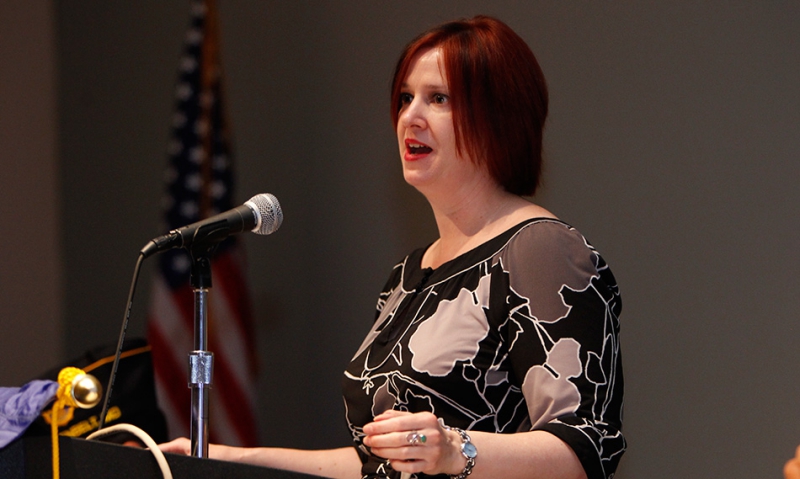
'Honoring a sacrifice'
Under criticism for its efforts to recover deceased U.S. military personnel whose remains have yet to be identified and returned home, the Department of Defense has tasked itself with overhauling the way it handles that mission. And one of the key persons involved in that overhaul told delegates to The American Legion’s 96th Annual National Convention on Aug. 23 that it's a mission DoD takes very seriously.
Alisa Stack, director of the Personnel Accounting Consolidation Task Force, told the Legion’s National Security Commission that a plan is in place to improve U.S. accounting efforts of its war dead.
“(Defense Secretary Chuck) Hagel’s decision to overhaul how the department conducts accounting … is about honoring the sacrifice of the individual and providing the fullest possible accounting to their families,” Stack said. “He asked for that plan in February, he got it in March, and he made decisions in March. I’ve rarely seen that among secretaries.”
Stack said the cooperation between the administration and Congress to change the way DoD handles personnel accounting “is a huge asset in what we’re trying to do and again shows the full commitment of the nation to do better by our missing servicemembers and their families.”
There are three phases to the overhaul:
• Unifying the mission of the agency and making sure that all involved understand that mission.
• Looking at the processes the agency uses to conduct its mission.
• Putting people in the right organizational structure.
Included in the overhaul, Stack explained, is developing a single agency to focus on missing personnel from past conflicts, taking some functions from existing accounting offices and incorporating them into the new agency.
“That agency will be in charge of identifications, and the identification authority will be a medical examiner from the Armed Forces Medical Examiner System,” she said. “This is a big change from how we’ve operated. It makes how we treat past conflicts equal and consistent with how we treat current-day conflicts. In current-day conflicts, it’s the medical examiner who conducts the identification. We were not doing that for past conflicts. The secretary felt it should not matter when a servicemember dies or when that servicemember goes missing. We treat them all equally.”
Expanding the private-public partnership also is part of the new accounting efforts – “making sure we are getting information out but also including information in is really exciting to me,” Stack said. “It’s a dynamic change.”
Enhancing relationships around the world also is critical, Stack said, but relationships here in the United States are just as important – including better information sharing with veterans groups. “We need to redouble (those efforts) in many areas,” she said. “We have to find a better way to take that information in, be able to use it and then tell you what we did. We don’t always … tell the person who provided it – sometimes it’s a family member. They’ll wait for years. We owe them.”
A single case-management system also will be implemented that will be accessible to missing personnel’s’ family members. “It sounds simple, but it has been one of the most difficult things to do,” Stack said. “It’s turning out to be a huge challenge, especially for World War II cases. All of this, again, is designed to improve the service that we give to families and fulfill the obligation the nation has to a missing servicemember.”
The goal is to have the agency’s initial operating capability ready by January 2015 and be fully operational and independent by January 2016. Stack said that Hagel directed that current POW-MIA accounting operations continue during the overhaul “so there’s no operation pause while we do this transformation. Operations have to continue.”
Stack said the new POW-MIA agency is taking a page from the Legion. “You are very persuasive advocates for veterans because you treat all your veterans equally, and you treat all these issues from that lens of what’s right for all veterans,” she said. “We’ve got to do that in (our) department when it comes to what’s right for all these families, and not segment across conflict or across time.”
